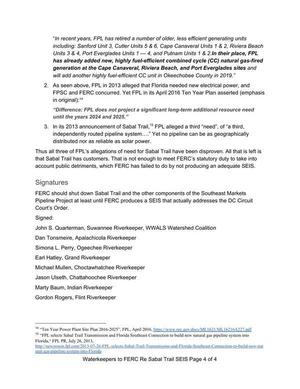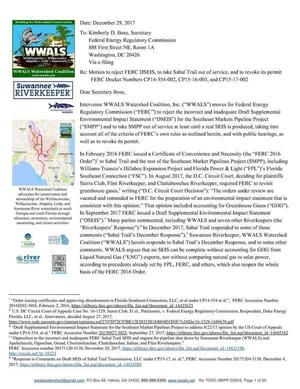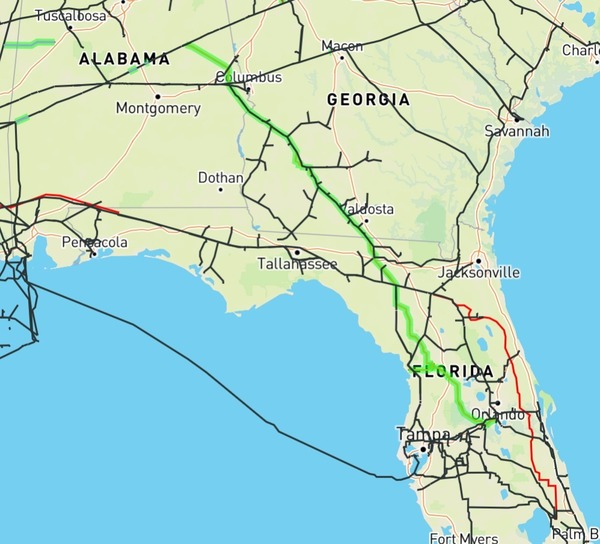Filed today as FERC Accession number 20171120-5130,
“Opposition to the incorrect and inadequate FERC Sabal Trail SEIS and request for pipeline shut down by Suwannee Riverkeeper (WWALS) and Apalachicola, Ogeechee, Grand, Choctawhatchee, Chattahoochee, Indian, and Flint Riverkeepers.” (Or see WWALS PDF.)
 From: The undersigned Waterkeepers
From: The undersigned Waterkeepers
Date: November 20, 2017
To: Kimberly D. Bose, Secretary
Federal Energy Regulatory Commission
888 First Street NE, Room 1A
Washington, DC 20426
Re: We oppose the incorrect and inadequate FERC Sabal Trail SEIS
FERC Docket Numbers CP14-554-002, CP15-16-003, and CP15-17-002
On September 27, 2017, the Federal Energy Regulatory Commission (FERC) published a draft Supplementary Environmental Impact Statement (SEIS).[1]
That SEIS was in response to the August 27, 2017 DC Circuit Court decision[2]
regarding FERC’s previous approval of Certificates of Convenience and Necessity for the three parts of the Southeast Markets Pipeline Project (SMPP), which are the Transcontinental Gas Pipe Line Company, LLC’s (Transco) Hillabee Expansion Project in Docket No. CP15-16-000; Sabal Trail Transmission, LLC’s (Sabal Trail) Sabal Trail Project in Docket No. CP15-17-000; and Florida Southeast Connection, LLC’s (FSC) Florida Southeast Connection Project in Docket No. CP14-554-000. The judges ordered:
“The orders under review are vacated and remanded to FERC for the preparation of an environmental impact statement that is consistent with this opinion.“
The draft SEIS issued by FERC is clearly not consistent with the court’s opinion for the following reasons:
-
The SEIS is factually incorrect in stating that: Continue reading →
 FERC, if it follows its own rules, should reject the DSEIS, stop Sabal Trail, and revoke its permit, says a motion filed today with FERC by Suwannee Riverkeeper.
FERC, if it follows its own rules, should reject the DSEIS, stop Sabal Trail, and revoke its permit, says a motion filed today with FERC by Suwannee Riverkeeper.


